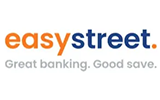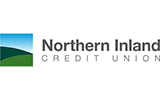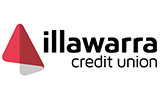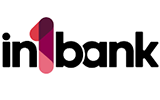Refinancing
What does refinancing your home loan cost?
By Jared Mullane
Compare home loans starting from 4.98% (comparison rate 5.22%).
Browse 100+ lenders - fast, easy & free
See personalised results in under 2 minutes
Get expert help finding your best home loan fit
Our dedicated Home Loan team is here to help. Updated 4 Feb 2026.

Loan amount
| Product | Interest rate | Comparison rate | Monthly repayment | Key features | Compare to Money.com.au lenders |
|---|---|---|---|---|---|
 HSBC Home Value Loan | 5.19% p.a. variable | 5.20% p.a. | $2,742 Principal & Interest | Max LVR 50% Redraw App Fee $600 | |
 Westpac Flexi First Online Offer Owner Occupied | 5.24% p.a. variable | 5.25% p.a. | $2,758 Principal & Interest | Max LVR 80% Redraw Split Loan | |
 Bendigo Bank Easy Home Loan Fixed | 5.28% p.a. fixed 2 years | 5.34% p.a. | $2,770 Principal & Interest | Max LVR 60% Redraw Split Loan | |
 Bank of Queensland Economy Variable Home Loan - $2k Cashback | 5.33% p.a. variable | 5.46% p.a. | $2,786 Principal & Interest | Max LVR 70% Cashback Redraw | |
 Macquarie Basic Home Loan P&I | 5.34% p.a. variable | 5.36% p.a. | $2,789 Principal & Interest | Max LVR 60% Redraw Split Loan | |
 CommBank Digi Home Loan Owner Occupied | 5.34% p.a. variable | 5.47% p.a. | $2,789 Principal & Interest | Max LVR 60% Offset App Fee $300 | |
 Suncorp Bank Back to Basics Better Together | 5.39% p.a. variable | 5.40% p.a. | $2,805 Principal & Interest | Max LVR 60% Redraw Split Loan | |
 ING Mortgage Simplifier | 5.39% p.a. variable | 5.42% p.a. | $2,805 Principal & Interest | Max LVR 60% Redraw Split Loan | |
 ANZ Fixed Rate Home Loan | 5.44% p.a. fixed 2 years | 6.29% p.a. | $2,820 Principal & Interest | Max LVR 80% Split Loan | |
 NAB Base Variable Home Loan | 5.69% p.a. variable | 5.73% p.a. | $2,899 Principal & Interest | Max LVR 90% Redraw | |
 BankVic Home Buyer or Upgrade Fixed Rate | 4.98% p.a. fixed 3 years | 5.29% p.a. | $2,678 Principal & Interest | Max LVR 80% App Fee $600 | |
 Move Bank Everyday Fixed Home Loan | 4.99% p.a. fixed 2 years | 5.24% p.a. | $2,681 Principal & Interest | Max LVR 95% Redraw App Fee $600 | |
 Easy Street Fixed Home Loan | 4.99% p.a. fixed 3 years | 5.29% p.a. | $2,681 Principal & Interest | Max LVR 95% Offset Redraw | |
 Easy Street Fixed Home Loan | 4.99% p.a. fixed 3 years | 5.29% p.a. | $2,681 Interest only | Max LVR 95% Offset Redraw | |
 Easy Street Fixed Home Loan | 4.99% p.a. fixed 3 years | 5.29% p.a. | $2,681 Interest only | Max LVR 95% Offset Redraw | |
 Easy Street Fixed Home Loan | 4.99% p.a. fixed 3 years | 5.29% p.a. | $2,681 Principal & Interest | Max LVR 95% Offset Redraw | |
 Northern Inland Credit Union Smart Home Loan | 4.99% p.a. fixed 3 years | 6.49% p.a. | $2,681 Principal & Interest | Max LVR 80% Offset Redraw | |
 The Mutual Bank Package Home Loan Fixed | 4.99% p.a. fixed 2 years | 6.94% p.a. | $2,681 Principal & Interest | Max LVR 95% Offset Redraw | |
 Move Bank Everyday Fixed Home Loan | 5.04% p.a. fixed 3 years | 5.23% p.a. | $2,696 Principal & Interest | Max LVR 95% Redraw App Fee $600 | |
 Community First Bank Boost Package Home Loan Fixed | 5.04% p.a. fixed 2 years | 5.67% p.a. | $2,696 Principal & Interest | Max LVR 80% Redraw | |
 Illawarra Credit Union Boost Package Home Loan Fixed | 5.04% p.a. fixed 2 years | 5.67% p.a. | $2,696 Principal & Interest | Max LVR 80% Redraw | |
 in1bank in1home | 5.08% p.a. variable | 5.13% p.a. | $2,709 Principal & Interest | Max LVR 50% Redraw | |
 Illawarra Credit Union Go Basic Fixed Home Loan | 5.09% p.a. fixed 2 years | 5.27% p.a. | $2,712 Principal & Interest | Max LVR 80% Redraw App Fee $600 | |
 Easy Street Fixed Home Loan | 5.09% p.a. fixed 2 years | 5.34% p.a. | $2,712 Principal & Interest | Max LVR 95% Offset Redraw | |
 Easy Street Fixed Home Loan | 5.09% p.a. fixed 2 years | 5.34% p.a. | $2,712 Interest only | Max LVR 95% Offset Redraw | |
 Easy Street Fixed Home Loan | 5.09% p.a. fixed 2 years | 5.34% p.a. | $2,712 Principal & Interest | Max LVR 95% Offset Redraw | |
 Easy Street Fixed Home Loan | 5.09% p.a. fixed 2 years | 5.34% p.a. | $2,712 Interest only | Max LVR 95% Offset Redraw | |
 Community First Bank Boost Package Home Loan Fixed | 5.09% p.a. fixed 3 years | 5.66% p.a. | $2,712 Principal & Interest | Max LVR 80% Redraw | |
 Illawarra Credit Union Boost Package Home Loan Fixed | 5.09% p.a. fixed 3 years | 5.66% p.a. | $2,712 Principal & Interest | Max LVR 80% Redraw | |
 The Mutual Bank Package Home Loan Fixed | 5.09% p.a. fixed 3 years | 6.79% p.a. | $2,712 Principal & Interest | Max LVR 95% Offset Redraw |
Our Home Loan comparison table shows all the best rates in our database (not just partner lenders) giving you a fairer, more transparent comparison, with way more choice.
Get personalised results from our lender panel to match your details in under 2 minutes. It means you can compare with confidence, choose smarter and save time and money.
Comparing Home Loans can be overwhelming. When things get tricky, our experts are on hand to listen and give straight answers to help you find the right home loan.
Thousands of Aussies trust us to compare finance deals every day. Why? Because WE GIVE A BUCK about getting them the best outcome, the right way. It shows in our score of 4.8 out of 5 on Trustpilot.

Home loan rate are due to increase again after the RBA lifted the cash rate by 0.25% in February. Lenders are likely to pass the increase on in full to variable-rate borrowers. Someone with a $600,000 loan over 25 years will see their repayments rise by around $90 a month, unless they kept their repayments unchanged after previous rate cuts, in which case more of each repayment will go towards interest. Competitive variable rates are now hovering above the mid-5% range, while lenders are also pushing up shorter-term fixed rates for new borrowers. Right now, home loan rates start from 4.98% p.a. (comparison rate 5.22% p.a.) on a two-year fixed rate for owner-occupiers.
Average new home loan
$693,801
Total value of new home loans issued per month
$30.08 billion
Australian homeowners who switch their mortgages each month
30,000+
Lowest home loan rates from
4.98% p.a.
Average monthly repayment (over 30 yrs)
$3,935
Australians who use a mortgage broker for their home loan
76%
| Loan | Interest rate | Comparison rate^ | Max LVR |
|---|---|---|---|
| in1bank in1home | 5.08% | 5.13% | 50% |
| Gateway Bank Green Plus Home Loan | 5.10% | 5.40% | 80% |
| Pacific Mortgage Group Owner Occupied Variable Home Loan | 5.14% | 5.14% | 80% |
| RACQ Bank Fair Dinkum Home Loan | 5.14% | 5.15% | 60% |
| RACQ Bank Fair Dinkum Home Loan | 5.14% | 5.15% | 60% |
| Bank of Sydney BOS Basic Home Loan | 5.14% | 5.18% | 50% |
| Bank of Sydney BOS Basic Home Loan | 5.14% | 5.18% | 60% |
| Australian Mutual Bank GumLeaf Basic Variable Rate Owner Occupied | 5.14% | 5.21% | 60% |
| Freedom Lend FREEDOM VARIABLE | 5.14% | 5.54% | 60% |
| Horizon Bank Home Sweet Home Loan | 5.14% | 5.84% | 70% |
| Loan | Interest rate | Comparison rate^ | Max LVR |
|---|---|---|---|
| BankVic Home Buyer or Upgrade Fixed Rate | 4.98% fixed 3 years | 5.29% | 80% |
| Move Bank Everyday Fixed Home Loan | 4.99% fixed 2 years | 5.24% | 95% |
| Easy Street Fixed Home Loan | 4.99% fixed 3 years | 5.29% | 95% |
| Easy Street Fixed Home Loan | 4.99% fixed 3 years | 5.29% | 95% |
| Northern Inland Credit Union Smart Home Loan | 4.99% fixed 3 years | 6.49% | 80% |
| The Mutual Bank Package Home Loan Fixed | 4.99% fixed 2 years | 6.94% | 95% |
| Move Bank Everyday Fixed Home Loan | 5.04% fixed 3 years | 5.23% | 95% |
| Community First Bank Boost Package Home Loan Fixed | 5.04% fixed 2 years | 5.67% | 80% |
| Illawarra Credit Union Boost Package Home Loan Fixed | 5.04% fixed 2 years | 5.67% | 80% |
| Illawarra Credit Union Go Basic Fixed Home Loan | 5.09% fixed 2 years | 5.27% | 80% |
Step 1
Run through some quick questions to help check your eligibility and preferences.
Step 3
Our home loan experts will help you choose the loan that’s right for you.
One of the biggest factor that determines your home loan rate is your loan-to-value ratio (LVR). This is your home loan as a percentage of the property you're buying. If you have a low LVR, you'll generally qualify for the cheapest home loan rates. Work out your LVR and then shop around multiple lenders to get the lowest rate you can.
But bear in mind your home loan rate can also be impacted by other factors, including:
A cheap home loan rate is something all borrowers should be aiming to get. But what you really want is the cheapest home loan that fits your needs.
What does that actually mean? Let’s take the home loan market in Australia right now. Most of the cheapest rates are on fixed rate loans. If you only compared the absolute cheapest home loans, you would probably end up on a three-year fixed rate. Is that what you actually want?
Just as importantly, will that loan still be the cheapest a year from now, when you are still locked into that rate for another two years? You could break the fixed rate but that would likely cost you a packet in fees.
A potentially better way of approaching your home loan comparison is to start by deciding what type of loan and what features make the most sense for you. Then look for cheap home loans – based on interest rate and fees – that are a good match for what you want.
The best way to avoid home loan fees is to shop around. Just remember that it may be worth paying a slightly higher one-off fee if it means you get a lower rate on your home loan. Interest costs generally outweigh fees over time. It's always worth asking the lender if they will waive the up-front fee.
A home loan with a low interest rate will be all the more effective at saving you money if you can combine it with useful features.
Offset account An offset account is a transaction account linked to your home loan that reduces the interest you're charged on your loan. That's because every dollar in that reduces the balance (or 'offsets') the balance of your loan that interest is charged on. Think of it like a high interest savings account, only instead of earning interest, you're avoiding it.
Extra repayments Many home loans offer the option to make additional repayments on top of your minimum mortgage repayments. This allows you to pay down your loan principal faster and save on interest. Fixed-rate loans often have limits on additional repayments of up to $10,000 or $20,000 per year.
Redraw facility Allows you to withdraw any extra repayments you've made on your home loan. You can use your redraw facility for any reason, including emergencies, investments, or other expenses. You can find more in our guide comparing a redraw and offset account.
Cashback offers Some lenders offer refinance cashback deals to attract new customers and incentivise borrowers to refinance their home loans. Some lenders also offer cashback to first-home buyers, but this is less common
This is entirely up to your own preferences. A mortgage broker can help you understand your borrowing power, how much of a home loan deposit you need, compare loans, and will recommend options that match your needs. They can also help with your application when you're ready to apply.
But it's possible to compare home loans and apply directly with a lender, without the help of a broker. It generally comes down to how confident you are comparing loans and taking care of the application admin by yourself.
If you want to compare home loans in a hurry, doing a quick online comparison with Money.com.au will take a matter of seconds. But ultimately if you want to save yourself time overall, speaking to one of our lending specialists means you will have an expert on your side to take care of the application and other paperwork. We also have direct contacts with the lenders on our panel, meaning we can usually get things moving faster for you.
Did you know? Our analysis of more than 20,000 Money.com.au home loan customers shows the average borrower in Australia has an loan-to value ratio (LVR) of just over 60%, meaning they own around 40% of their property. That level of equity puts a borrower in a great position to access the very best home loan rates available.


Debbie Hays, Senior Mortgage Broker
“If you’re refinancing or purchasing a new home and your LVR is less than 70% (in other words you have a deposit or equity of at least 30%), you should be able to get better than the advertised price, especially if your loan amount is under $1 million. Usually, the lender will shave 10-15 basis points off the advertised rate and if they don't, ask why."
Debbie Hays, Senior Mortgage Broker
Everything you need to know about refinancing your home loan.

Find out the impact of interest rate changes on your repayments.
Refinancing your home loan means switching your loan to a different product or lender, or increasing your loan size. For example, you might switch from a variable to a fixed rate loan with your current lender, or stay with the same lender and increase your loan balance. Alternatively you could do the same but with a different provider.
If you’re increasing your loan amount, the lender will generally carry out a credit assessment, even if you’re staying with your current provider. They do this to ensure you can afford the repayments based on the higher loan balance. The lender will usually also arrange for your property to be valued.
If you’re switching lenders to get a better deal, the new lender will treat your application much like they would if you were buying a property for the first time. That means they will assess your financial situation, borrowing capacity and get your property valued.
Once you’re approved, refinance home loans work just like any other kind of mortgage product.
There are several potential costs to factor in if you refinance your home loan. You’ll have most of the same costs as you did when you got your loan initially (e.g. establishment fee and valuation fee), as well as a discharge fee charged by your old lender. Overall, expect to pay between $500 - $2,000.
If you’re staying with the same bank the cost of refinancing is generally lower and may even be nothing if it's a straightforward product switch.
Some lenders have home loan cashback offers for new customers, which could help offset the cost of switching if you're eligible.
Refinancing with a mortgage broker may save you some time, as the broker does a lot of the work for you. It can also be less of a hassle to have an expert do the research for you and simply present you with deals that are better than your current one. Your broker can also negotiate on rates and fees with your existing lender and any new ones you’re considering to make sure you’re getting the best deal possible.
If you decide to go ahead with the switch, your broker will also help with your application and any other paperwork required.
This depends on the type of refinance. If you’re simply switching to a new product with your current lender without increasing your loan amount, this process can be completed in days. If you’re applying with a new lender or borrowing more with your current one, that process could take between 2-6 weeks depending on how complex your application is.
If you have available equity in your home, you may be borrow more with a cash-out refinance loan.

Nathan from Queensland
"We bought our first house about 12 months ago, but I was talking to the boys at work and everyone seemed to be on a better interest rate than I was. So I figured I’d check it out online and do a home loan comparison and came across Money.com.au. I entered a few details to see if I could get a cheaper rate and ended up talking to Nick, who was awesome. He did exactly what he said he was going to do, made it easy and got everything sorted for me. We ended up saving half a percent on our loan, so as much as the last two RBA rate cuts, and all up we’re saving around $300 a month."
Nathan from Queensland
Frequently asked questions for first home buyers.
A home loan or mortgage is used to finance a home or investment property. Home loans are usually 'secured' against the property you're buying. That means the lender can sell the property to cover the loan amount if the borrower can't repay the loan.
You can choose between a variable rate home loan or a fixed rate mortgage. Mortgage terms in Australia range up to 30 years, though some lenders are now offering 40-year home loans.
Lenders check your credit score when you apply for a home loan. If you have a good credit score, your chances of approval will be higher compared to a borrower with a lower score. Having a high credit score means you're more likely to be eligible with the widest range of lenders, meaning you'll have more scope to get the best deal on your loan.
The process of getting a home loan usually takes somewhere between 2-6 weeks from start to finish. But it can take longer if there are any complications. It’s important to allow time to thoroughly research and compare options, complete your application carefully, gather and provide all supporting documents (pay slips etc.) and then wait for the lender to assess your application. If you’re approved, you will need to review and sign the loan contract.
If you have signed a contract to buy a house subject to finance, most lenders will prioritise your application to meet the timing of the finance clause (typically 14 days).
BIG NEWS FOR FIRST HOME BUYERS! The Federal Government has kicked off its planned expansion of the First Home Guarantee scheme as of 1 October 2025. This means all eligible first home buyers can now get a home loan with a deposit of as little as 5%, without paying for lender’s mortgage insurance (LMI).

Popular articles about property investing in the Australian market.

HOME LOANS
By Shaun McGowan

HOME LOANS
By Megan Birot

HOME LOANS
By Sean Callery

HOME LOANS
By Megan Birot

HOME LOANS
By Megan Birot

HOME LOANS
By Megan Birot
Calculators
The best home loan rates are generally available to owner occupiers with a low loan-to-value ratio. In other words, if you have a large deposit or a high level of equity in your home relative to the loan amount, many banks will offer a lower rate. That’s because these loans are less risky for lenders.
Investors and other borrowers perceived as presenting a greater risk to lenders are generally charged higher home loan rates.
In addition to shopping for the lowest interest rate, here are some simple tips from Money.com.au’s home loans expert and mortgage broker, Debbie Hays, to help you shave time and money off your mortgage.
1. Switch to fortnightly repayments By making fortnightly repayments instead of monthly, you'll make the equivalent of an extra month's repayment each year without even realising it. There are 26 fortnights a year, the equivalent of 13 monthly repayments. This helps reduce your loan balance sooner and your total interest paid over the life of the loan.
2. Increase your repayments by 5-10% If your budget allows, consider making extra home loan repayments (however small). For instance, increasing your fortnightly repayments on a $600,000 loan at 6.00% interest over 30 years by just 5% (adding $115 each fortnight) could save you $100,310 in interest overall and shave three years off your home loan.
3. Use your offset account Keep your household income and savings in your offset account to reduce your interest payable. For a $600,000 home loan with a 6.00% interest rate and fortnightly repayments, having $20,000 in your offset account could shave two years off the loan's life and save $91,742 in interest.
4. Refinance every 2-3 years Consider refinancing to a lower interest rate every 2-3 years if the market allows, while also reducing your loan term by one year each time. For instance, refinancing a $600,000 home loan from a 6.00% rate on a 25-year term to a slightly lower rate of 5.80% on a 24-year term would slightly reduce your monthly repayments and save you $47,017 in interest over the life of the loan.
5. Aim to lower your LVR To get the best home loan interest rate, your LVR should be 60% or less. Every borrower should aim to lower their LVR to 60% as soon as possible. You can do this by paying down your mortgage when you can or by building the equity in your home by increasing its value.
It could be some time before we see lower home loan interest rates in Australia. The RBA increased the official cash rate at its first Board meeting of 2026 and, more broadly, interest rates (particularly fixed rates) have been on the rise at the start of the year.
Experts anticipate further rate increases to come this year, as the battle against high inflation drags on.
Switching your loan is likely to be the only way to get a lower mortgage rate for the foreseeable future.
The minimum eligibility requirements for a home loan include:
The home loan that’s best for you will depend entirely on your goals and circumstances, but it should ideally have the trifecta:
How much you can borrow with a home loan will depend on how much of a deposit you have (or equity in your existing property if you’re refinancing), plus your income, expenses, liabilities (including outstanding debts) and whether you have any existing assets like an investment property with equity.
To assess your borrowing capacity, lenders will consider your financial situation and credit profile.
You generally have the option to make repayments on your home loan weekly, fortnightly or monthly.
Your mortgage repayments will include a principal (what you borrowed) and interest component. There's also the option to get an interest-only home loan, where you'll only pay the interest for a set period of time.
If it's a principal and interest (P&I) loan, initially a larger portion of your repayments will go towards paying off the interest. But over time, more of your repayments will go towards reducing your principal. This is because interest is calculated daily based on your outstanding loan balance, which decreases as you repay more principal over time.
Yes, and you should! Home loan interest rates are constantly changing and if yours is no longer competitive, you should ask your lender for a discount. Particularly if you have an LVR below 60% and you are on top of your repayments, you should be in a strong position to negotiate. If your lender will not offer a discount, you can consider switching lenders to get a better rate.
Your home loan repayments will depend on your loan amount, your home loan interest rate, your loan term and how frequently you make repayments (monthly, fortnightly or weekly).
To help you understand what your repayment could be, we've compared the repayments on different loan amounts based on on loans from a wide range of lenders:
Typically, you can opt to fix your home loan rate for a period ranging from one to five years. However, some lenders, such as ANZ and RAMS, provide fixed-rate home loans for up to 10 years.
The comparison rate on a home loan is designed to more accurately reflect the total cost of the loan per year, including interest and most fees. Lenders and mortgage brokers must advertise the comparison rate alongside a loan's interest rate.
The comparison rate can be a helpful tool for comparing loans, but it has its limitations. For example, it is always calculated on a loan size of $150,000 over a 25-year loan term, which won't be realistic for a lot of borrowers. On a fixed-rate loan, the comparison rate factors in the rate the loan reverts to once the fixed term ends, meaning it can be quite different to the rate you'll actually be paying during the fixed term.
We help you compare
100+
Lenders (including the ones that don't pay us)
1,600+
Mortgage products
30,000+
Product data points
Compare multiple lenders, easily.
Loan Amount
Home loan comparison rates are calculated based on a loan amount of $150,000 repaid over a 25-year term with monthly repayments. The comparison rates only apply to the examples given. Different loan amounts and terms will result in different comparison rates. Costs such as redraw fees or early repayment fees and cost savings such as fee waivers are not included in the comparison rate but may influence the cost of the loan. Check with the provider for full loan details, including rates, fees, eligibility and terms and conditions to make sure the product is right for you.
General information only
The information on this page is general in nature and has been prepared without considering your objectives, financial situation or needs. You should consider whether the information provided and the nature of any home loan product is suitable for you and seek independent financial advice if necessary.
We are not providing you with a recommendation or suggestion about a particular home loan. You should read the relevant disclosure statements or other offer documents before deciding whether to apply for or continue to use a particular product.
What products, features and information are shown
While we make every effort to ensure all home loans available in Australia are shown in our comparison tables, we do not guarantee that all products are included.
Our product comparisons may not compare all home loan features and attributes relevant to you.
Product information, such as interest rates, fees and charges, is subject to change without notice. Before acting on any information, you should confirm the relevant product information with the lender.
How home loans are sorted and filtered by default
Users can easily change the sort order and apply product filters to our product comparison tables. However, when you arrive on a page initially, by default home loans are sorted by:
Some home loan products listed in our tables are available through a mortgage broker. These are the products with an option to ‘Check Eligibility on Money.com.au’. Mortgage brokers may not be able to offer loans from every provider and there may be more suitable loans for your personal circumstances.
Mortgage brokers are not authorised by Money Australian Credit Licence and operate under their own Australian Credit Licence, or as a credit representative of another Australian Credit Licensee. Mortgage brokers can make recommendations about home loan products that may suit your objectives, financial situation and needs.
Our tables feature all home loans available from lenders on our database that match the search criteria selected. Lenders do not pay to feature in our tables, nor do we earn commission if you click to visit a lender’s website. The order of the products in the table is not influenced by any commercial arrangements.
If you get help from a mortgage broker as a result of visiting this page, we may earn a commission.